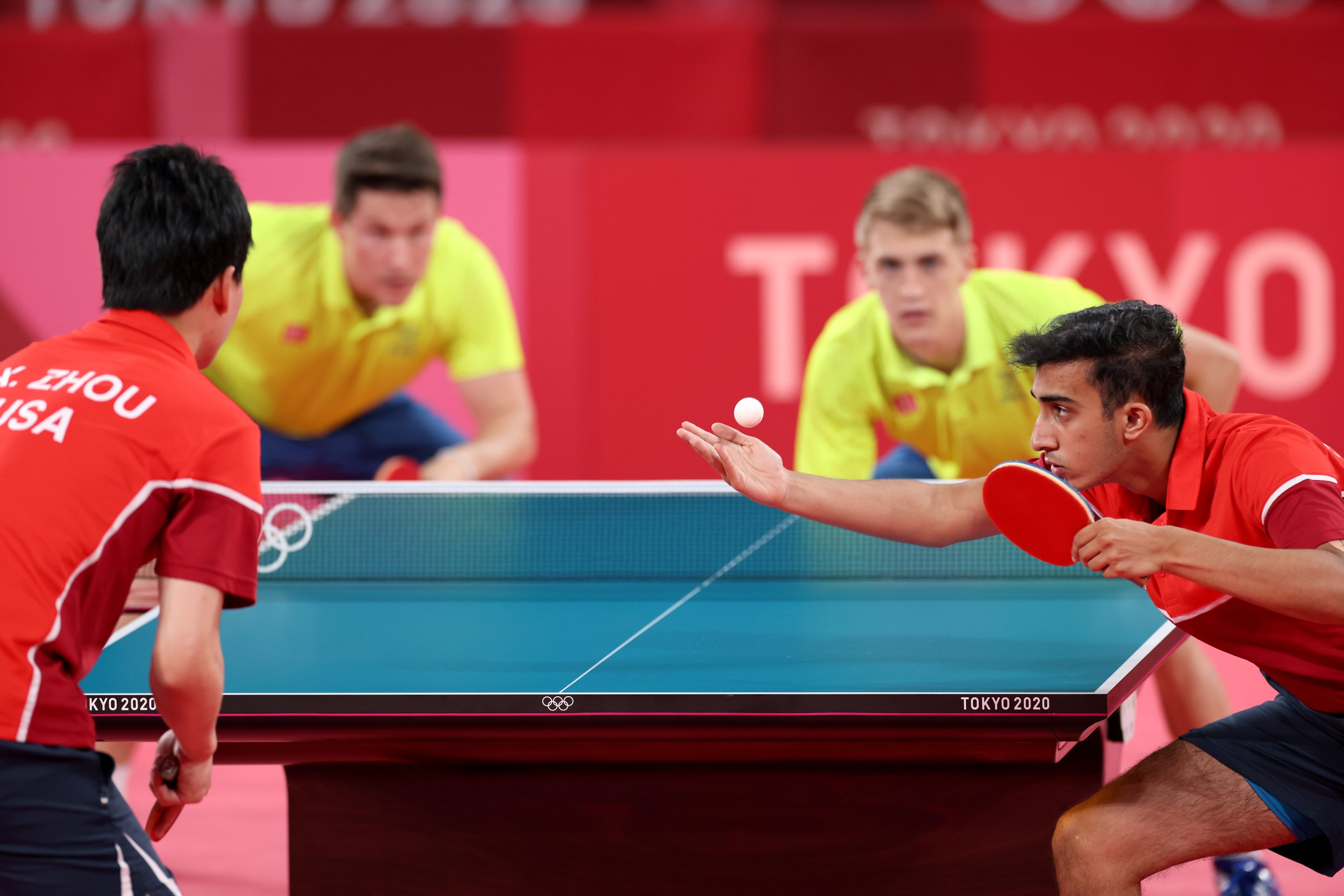Watching Olympic table tennis, which wrapped up today with China sweeping Germany in the men's team event final, is to witness the nexus of restraint and power. It's to appreciate the marriage of execution and exertion, patience and daring, knowing each point is as much a mental battle as a physical one. Table tennis is related nearly as closely to chess as it is to its on-court brother, and the experience of watching it at the highest level is to feel pleasantly claustrophobic. It's also to wonder why the heck everyone is yelling "Cho!" all the time.
Watch practically any match—whether it be at the Olympics or the U.S. Open or any other high-level competition—and you'll hear players yell "Cho" or "Cho-le" after winning a point, or sometimes even before a point. "Cho" is sometimes paired with a fist pump or any other celebratory exclamation, but the sheer prevalence of the phrase, especially for casual viewers who generally only watch elite table tennis every four years, is impossible not to notice. Please enjoy this compilation of a small fraction of the chos from this year's Olympics:
Cho-ing, as it's called in the ping-pong community, has been around for some time, but no one seems to quite know where it came from. Nikhil Kumar, an 18-year-old American table tennis player and enthusiastic cho-er who competed at this year's Olympics, told Defector that he's not even sure where the phrase originated. Texting with Defector from Tokyo, where the U.S. men's and women's teams lost in the round of 16, Kumar said, "I don’t know much about it. When I was younger I just noticed a lot of the better players were saying 'Cho' when they were winning points and I just picked it up. I’m not sure exactly what it means."
A blog called Ping Pong Sunday suggests it came from a Chinese phrase, meaning "good ball." Kumar said he didn't know about the etymology, but whatever its origins, "Cho" seems to have transcended language to represent a feeling more than a word or phrase. Players from all over the world—China, Slovenia, Britain, Germany, Korea, America, Romania, Japan and more—have embraced the cheer as part of the sport's culture.
"For the most part, a lot of players say 'Cho,'" Kumar said. "Some players say 'come on,' or 'let’s go,' or something in their own language similar to that. I think it just hypes players up when they yell."
For his part, Kumar says it energizes him during matches. "'Cho' is just a way to help me get excited and motivated when playing," he said. "It does pump me up. I think one Japanese player named Tomokazu Harimoto is probably the most enthusiastic person." Below is Harimoto cho-ing with great intensity against the GOAT Ma Long of China in last year's World Cup.
There are some players who don't say "Cho" at all. When asked if he could explain why some players opted out of cho-ing, Kumar said, "Some players just like to be more energetic when playing compared to others. But everyone has their own way of hyping themselves up."
As Kumar pointed out, what "Cho" actually means is far less important than the feeling it allows the athletes to express. When a tennis player yells "Come on!" or a football player yells "Let's go!" all they are really doing is reaching for quick burst of words to accompany their feeling of accomplishment. In that regard, it's hard to improve on the utility of "Cho." It's easy to say, it can be spoken quickly or elongated for effect, and it pairs perfectly with a celebratory fist pump. Why does everyone yell "Cho!" when playing table tennis? Why wouldn't they?






